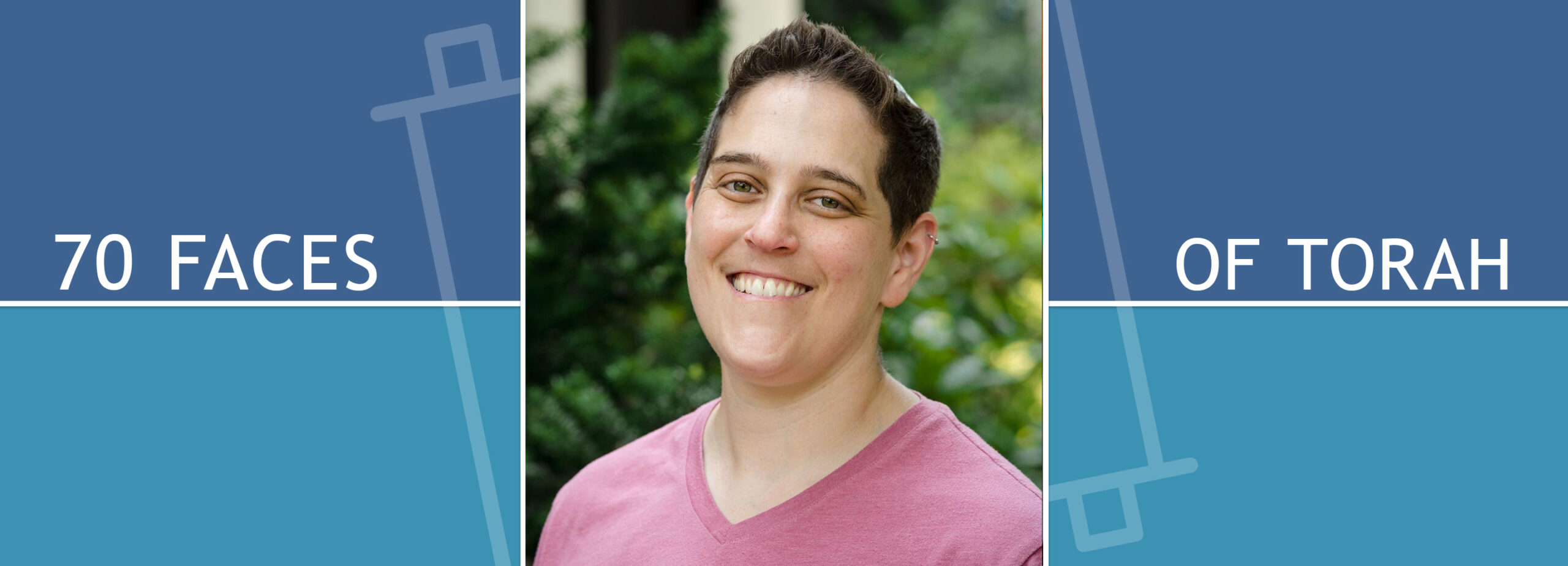Jewish learning On Fear…

Parashat Behar-Bechukotai (Leviticus 25:1 – 27:34)
Being human is not easy. I carry this thought with me constantly. It lives in my heart as I watch my kids try to learn new things or express their feelings with words instead of big actions. It lives in my head as I learn new texts. It lives in my body as I work to parent, facilitate, lead, teach, and be in a world filled with overwhelming suffering and deep beauty.
Being human is not easy. I have come head to head with this reality several times in just the past week, such as when:
- Amy St. Pierre was murdered in Atlanta while sitting in the waiting room of a doctor’s office. Amy was connected to me through several channels in my circle of friends, forcing home the realization that the headlines tell public stories that also play out in private with real people.
- I texted a baby picture to my friend Maharat Rori Picker Neiss who, alongside her spouse, Russell, and our colleagues Rabbis Daniel and Karen Bogard, are fighting for trans lives in Missouri. The fight for trans rights is always personal, but sending Rori baby pictures, as silly as it seems, connects me to the work happening on the ground.
- I was working on a testimony writing toolkit in support of Truah-MA’s partnership with Families for Justice as Healing in their #NoNewWomensPrison Campaign and was reminded that I live next to the part of Boston most impacted by policing and incarceration.
Each of these scenarios raises different questions in its own context. When combined with our identities and experiences, an infinite number of responses is generated. And, for me, all three evoke fear.
Our Torah portion this week likewise evokes fear. The phrase וְיָרֵאתָ מֵּאֱלֹהֶיךָ (you should fear your Gd) appears five times in Torah, three of which are in our double parashah, Behar-Bechukotai. How might our understanding of “you should fear your Gd” help us understand our other fears in the world?
From a textual perspective, this phrase could have several roles in a given verse: motivation for an action mentioned earlier in the verse, a consequence of that action, or as an independent clause. The same is true in our lives—fear is a motivator, a consequence, or something that might emerge independently. Given the place of fear in human experience, it is not surprising that the Torah introduces yirah (fear) into our relationship with the divine.
What is the nature of this fear? Psalm 27, commonly recited from Rosh Chodesh Elul through the end of Sukkot opens:
לְדָוִד יהוה אוֹרִי וְיִשְׁעִי מִמִּי אִירָא
Of David. Adonai is my light and my help; whom should I fear?
Commenting on this verse, the Malbim, a 19th century Russian-born rabbi and scholar, teaches:
Yirah (fear) is from a known thing… When a man fears from revealed enemies which battle with him, it is called Yirah; corresponding to this, David says that Hashem is my light and my salvation, from whom shall I have Yirah.
I am curious about the Malbim’s notion that yirah is fear from a known thing. In the case of both yirat Hashem (fear of Gd) and fears in our own lives, fear may arise from something that is familiar to us. Intuitively, we might think that knowledge itself is an antidote to fear, yet often, knowing adds complexity that can increase the feeling of apprehension. In Psalm 27, Gd is also the response to fear, creating the conditions to confront it. When we consider yirat Hashem through this text, Gd is both the known entity we fear and the response. Perhaps here we can lean into our position of being created in Gd’s image and follow Gd’s lead on both ends of this experience—we can name the fear and create the conditions to confront it.
Naming our fears is only one possible response. Creating the conditions to confront them is another. We might also bury our fear, leaving it for another day. These are not mutually exclusive, nor are they the only possible responses.
On the days when I feel the most well resourced, I understand the admonition to fear Gd as an invitation to lean into my fear—to sit with it and, perhaps, to work to transform it.
The root of the word yirah has two core meanings—fear and awe. In working to harmonize these two possible meanings, Rabbi Shai Held brings the teaching of Bernard Steinberg, “‘Awe is what happens to fear when it stops being about me.’ When I fear God, in other words, I think about God’s might and the ways it could impact me, but when I hold God in awe, I think only of God’s might; thoughts of how it could affect me simply fall away. Fear becomes awe, then, when I forget about myself and focus only on God,” (The Heart of Torah, v. 2, p. 268).
Gun violence. Anti-trans legislation. Incarceration as the default solution to societal problems. My ability to walk through the world. My children’s future. The move from fear to awe can move us from inaction and isolation to the power of connecting with the divine and each other. There is nothing more awe-inspiring than working alongside our neighbors to lift each other up. There is also nothing more filled with the divine.
Please email the author if you’d like to share feedback.
Rabbi Becky Silverstein (he/him) believes in the power of community, Torah, and silliness in transforming the world. Becky is on the faculty of SVARA: A Traditionally Radical Yeshiva, and is the co-director of the Trans Halakha Project.

